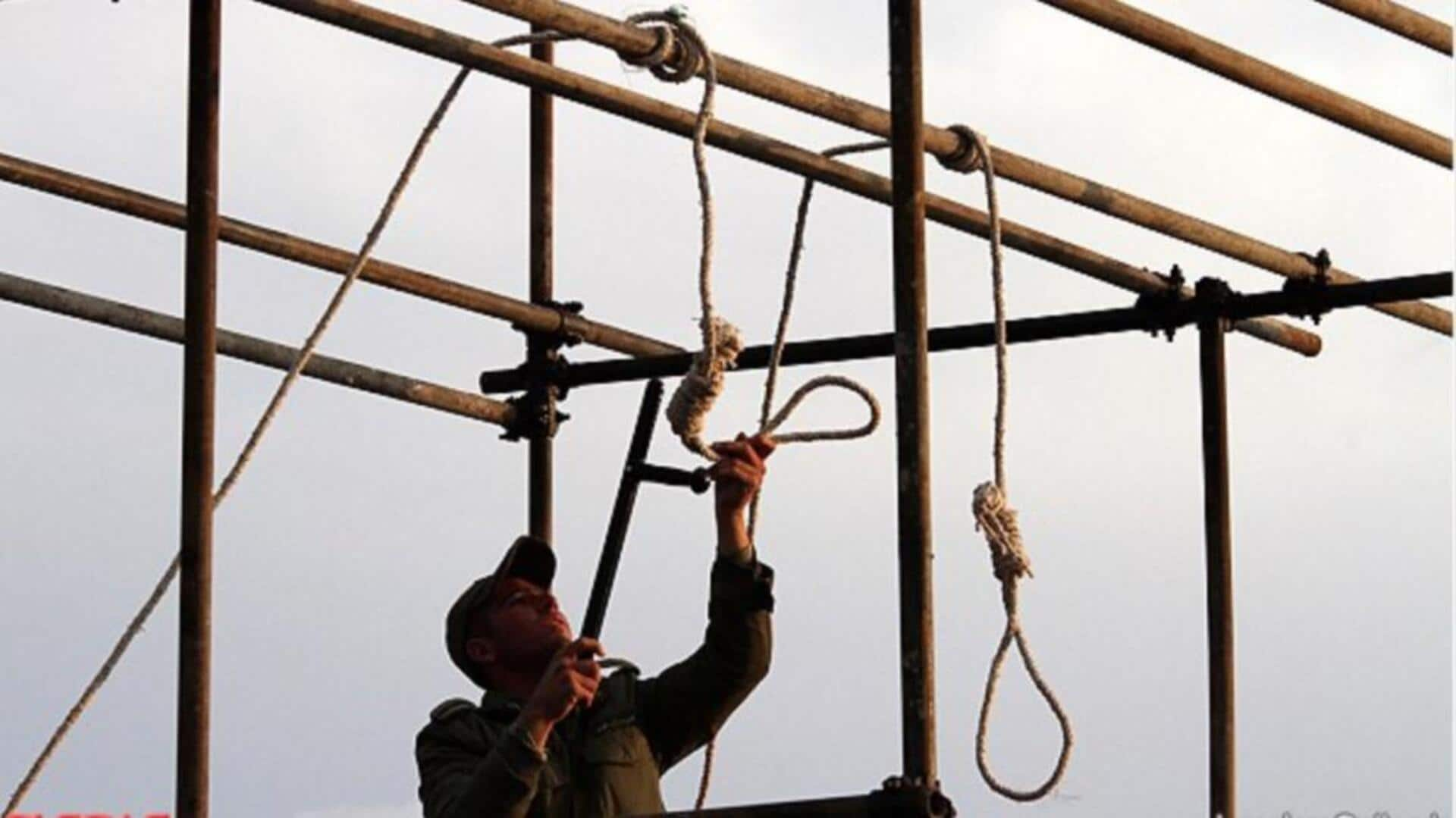
Iran: Child bride faces execution unless $150,000 'blood money' paid
What's the story
Goli Kouhkan, a 25-year-old woman from the Baluch ethnic minority in Iran, is facing execution by hanging for her husband's murder. She has been on death row at Gorgan Central Prison for seven years. The incident occurred when Kouhkan was 18 and her husband was beating their son, then aged five. After calling a cousin for help, a fight broke out, which resulted in her husband's death.
Confession details
Kouhkan's sentence and the blood money deal
Kouhkan was arrested along with her cousin and later signed a confession under duress during interrogation, despite being illiterate. She was sentenced to qisas (retribution-in-kind) for her husband's murder. Although judges have sentenced Kouhkan to death, under Iranian law, a victim's family can pardon her in exchange for blood money. Currently, prison officials have negotiated a deal with the victim's family: they will spare Kouhkan's life if she pays 10 billion tomans (over $150,000) as blood money and leaves Gorgan.
Systemic issues
Systemic discrimination in Iran highlighted by Kouhkan's case
Kouhkan's case has once again drawn attention to the systemic discrimination against women and minorities in Iran, The Guardian quoted activists as saying. Human rights activists have condemned her sentence as a reflection of these societal factors. Mahmood Amiry-Moghaddam from Norway-based Iran Human Rights (IHR) called Kouhkan "probably the absolute weakest in Iranian society." He slammed Iranian authorities for using the death penalty to instill fear and enforce discriminatory laws.
Pattern
Rising number of executions in Iran
Kouhkan's case is not an isolated incident. Other women, like Samira Sabzian Fard and Fatemeh Salbehi, have faced similar fates after being forced into marriages as children. In 2024 alone, Iran executed at least 31 women for various offenses, the highest number in over 15 years. The trend continues in 2025 with at least 30 women executed so far.